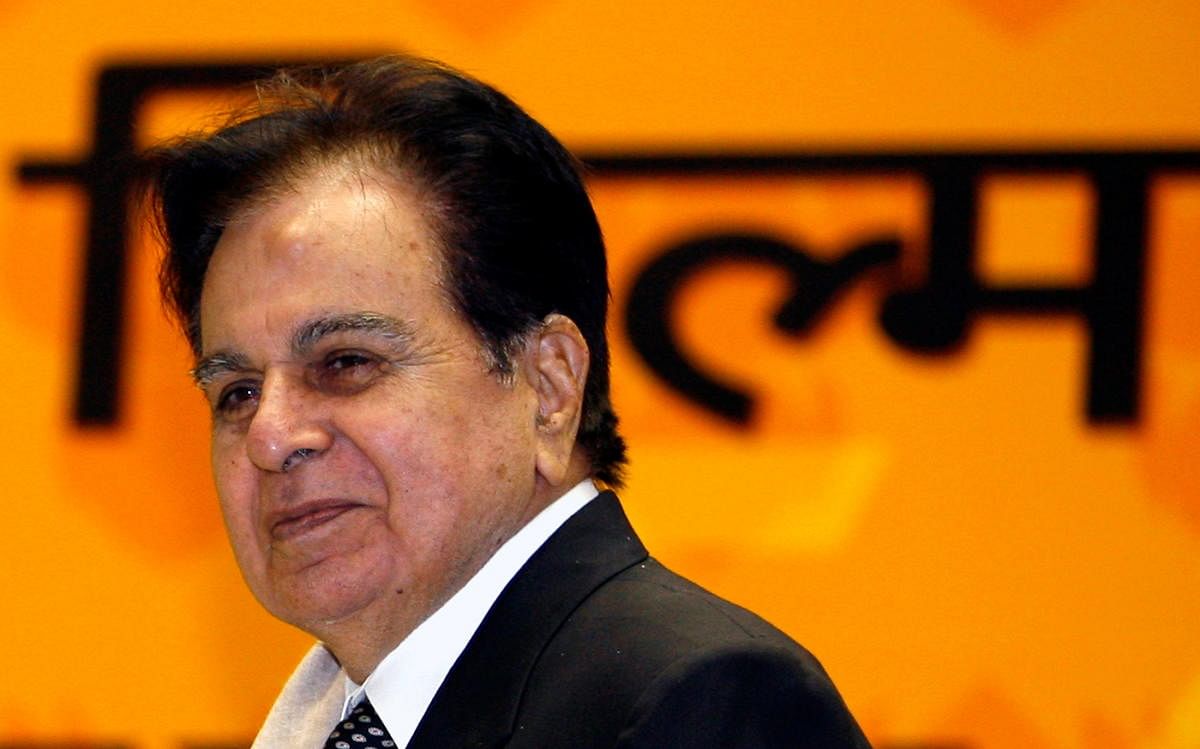
Amitabh Bachchan said that when the history of Hindi cinema is written, it would be before Dilip Kumar and after Dilip Kumar. Satyajit Ray called him “the ultimate method actor.”
During the best part of Dilip Kumar’s career, songs and dances were an intrinsic part of films. Indian films followed the native aesthetic of Navarasas, different from the Western aesthetic followed by new wave filmmakers, and taught in film schools.
It is not easy to combine naturalism and realism with songs and dances: it is to Dilip Kumar’s credit that he was able to do this like no one else before or since. He brought great dignity to his songs. And when the situation demanded, how well he danced: see ‘Nain lad jai hain’ from ‘Ganga Jamuna’, ‘Mere pairon mein ghungroo bandha de’ from ‘Sunghursh’ and ‘Mujhe dunia walo sharabi na samjho’ from ‘Leader’.
VAK Ranga Rao, the eminent musicologist and film historian, once said to me, “Tell me why should one see Indian films if not for the songs and dances? The story, acting, and cinematography are far better in Hollywood films.”
Dilip Kumar’s films of the golden age of Hindi film music are musical milestones. Anil Biswas, arguably the greatest Hindi film composer, divided film songs into “Mehfil ke gaane” and situational songs. Mehfil songs are those which have an independent life of their own apart from the film. Dilip Kumar songs mostly fall into the Mehfil category. Here is a chronological list of a dozen musical masterpieces of Dilip Kumar.
All such lists are subjective. But the songs given here are all outstanding compositions.
1. ‘Yahan badla wafa ka bewafai ke siwa kya hai’ from ‘Jugnu’, (1947), composed by Feroze Nizami, sung by Noor Jehan and Mohammed Rafi. This was the super hit film that made Dilip Kumar a star. It was also a breakthrough song for Mohammed Rafi.
2. ‘Tu kahe agar’ from ‘Andaz’ (1949), composed by Naushad, and sung by Mukesh. This was the piano song that became a template for all piano songs. Every hero worth his salt wanted to sing a “piano song” after this.
3. ‘Ai dil mujhe aisi jagah le chal’ from ‘Arzoo’ (1950). Composed by Anil Biswas. This song was the grand entry of Talat Mahmood in Hindi films. With this, he became Dilip Kumar’s voice during his ‘Tragedy King’ phase. This film was based on Wuthering Heights.
4. ‘Seene mein sulagte hain armaan’ from ‘Tarana’ (1951), another peerless composition by Anil Biswas. This was to be a Dilip Kumar solo sung by Talat Mahmood but Lata was so fascinated by it that she put pressure to make it a duet. In 2000 it was voted in a poll as the ‘song of the century.’
5. ‘Dil mein chhupa ke pyar ka toofan le chale’ from ‘Aan’ (1952), composed by maestro Naushad and sung by Mohammed Rafi. After playing a series of tragic roles, Dilip Kumar had gone into depression. A psychologist advised him to start playing light-hearted roles. Dilip Kumar changed track with ‘Aan’. This was his first swashbuckling role in the first technicolour film of India. With ‘Aan’ and ‘Deedar’, Naushad fixed Mohammed Rafi’s voice for Dilip Kumar. Dilip-Naushad-Rafi became a trio.
6. ‘Yeh hawa yeh raat yeh chandni’ from ‘Sangdil’ (1952), composed by that temperamental genius, Sajjad Husain, about whom another genius, C Ramachandra, said, “We compose for you people, Sajjad composes for us.” Sangdil was the Indian version of Jane Eyre, and thanks to Dilip Kumar, Madhubala and Sajjad Husain, I find it more enjoyable than dozens of the other Western adaptations of Jane Eyre.
7. ‘Kahan ho kahan mere jeevan sahare.’ Another gem from ‘Sangdil’ sung by Talat Mahmood for Dilip Kumar.
8. ‘Dil mein samaa gaye sajan,’ also from ‘Sangdil’, one of the greatest duets ever.
9. ‘Sham-e-gham ki kasam’ from ‘Footpath’ (1953) sung by Talat Mahmood. ‘Footpath’ was composer Khayyam’s first independent film and this song made his reputation. Picturisation of this song is flawless. Good songs in many films are spoilt by bad picturisation. This was never the case with Dilip Kumar. All his songs are so well acted and picturised that you feel, “Yes, this is how it should be.”
10. ‘Kitna haseen hai mausam’ from ‘Azaad’ (1955), composed by the incomparable C Ramachandra, and sung by him and Lata Mangeshkar. ‘Azaad’ was another light-hearted caper of Dilip Kumar after he started doing comedies. The film was an entertaining showcase of Dilip Kumar’s versatility.
11. ‘Yeh mera deewanapan hai’ from ‘Yahudi’ (1958), composed by Shankar Jaikishan and sung by Mukesh for Dilip Kumar after a gap of nine years. Shankar Jaikishan are associated with Raj Kapoor and it is said that they reserved their best for him. But they gave outstanding music for Dilip Kumar films also. ‘Daag’, ‘Shikast’ and ‘Yahudi’, all Dilip Kumar starrers, have memorable songs by Shankar Jaikishan. How could there be anything other than the best for him?
12. ‘Dil tadap tadap ke keh raha hai’ from ‘Madhumati’ (1958), one of Dilip Kumar’s finest films, with one of the finest film directors, Bimal Roy, has music by one of the finest composers, Salil Chowdhury. A triumph of excellence all round. Salil Chowdhury’s range encompassed music of the whole world. This song is based on a Polish folk song. A song around the trees was de rigour in films, with the stars running around trees. This is also a ‘tree song’ but note with what dignity and grace Dilip Kumar performs it. That is why Dilip Kumar was incomparable.
Finally, ‘Laagi nahin chhute Rama’ from ‘Musafir’ (1957). This is a surprise item. This Salil Chowdhury composition is sung by, yes, Dilip Saab with Lata Mangeshkar. To sing a Salil Chowdhury composition is no mean feat. Dilip Saab does it with flying colours. One wonders why he did not sing more.
Dilip Saab, you gave so much pleasure to countless people. RIP.
(The author is a former ambassador of India to UNESCO).